
Sugar cane (Saccharum officinarum) is a perennial crop that can be harvested a number of times once first growth and regrowth have reached maturity.
Deon Schröder, who farms in KwaZulu-Natal’s Dalton area, grows 600ha of dryland sugar cane, of which about 55% is harvested in an 18to 24-month rotation.
“We get roughly five harvests from a field, which means we plough out and replant a field every 10 years,” he says.
“Traditionally, a field would lie fallow for three to six months between ploughing out and replanting. Like many other South African sugar cane growers, I struggle with an increase in soil acidity over the life of a field. Even though sugar cane can tolerate soil acidity to some degree, it’s commonly a severely limiting factor, resulting in serious yield losses.”
SOIL ACIDITY
South Africa’s sugar cane farmers typically deal with increased soil acidity by applying lime or gypsum to the surface of a fallow land immediately after a crop plough-out.
According to Schröder, most sugar cane farmers aim to keep their lands totally free of weeds, using herbicides as well as hoes.
In addition, they use chemical fertilisers to boost growth. Based on soil test results, a fertiliser mix is applied at a rate of about 120kg/ha nitrogen (N), 20kg/ ha phosphorus (P) and 200kg/ha potassium (K). Ratoon crops are given the same mix, but a slightly higher rate of N – between 140kg/ha and 180kg/ha.
“When a field is ready for harvesting, we burn it to remove as much leafy material as possible from the standing stalks to make harvesting and processing easier,” says Schröder.
This story is from the December 13, 2019 edition of Farmer's Weekly.
Start your 7-day Magzter GOLD free trial to access thousands of curated premium stories, and 8,500+ magazines and newspapers.
Already a subscriber ? Sign In
This story is from the December 13, 2019 edition of Farmer's Weekly.
Start your 7-day Magzter GOLD free trial to access thousands of curated premium stories, and 8,500+ magazines and newspapers.
Already a subscriber? Sign In
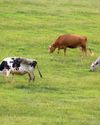
Africa goes from net carbon sink to source
New research shows Africa's impact on greenhouse gases and the need to focus on climate-smart agriculture
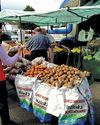
Ireland potato farmers unable to complete planting
Irish potato farmers have reported a delay in harvest and said that the UK might have to prepare for shortages of the produce. The shortfall is due to extreme wet weather during their planting season.
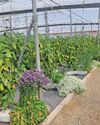
Zero-residue fresh produce a reality
Retail giants are calling for caution when using biologicals and chemical pesticides,

Big boost for mohair producers in Eastern Cape
A collaboration between the Eastern Cape Development Corporation (ECDC) and the Mohair Empowerment Trust (MET) has resulted in a R1,4 million injection into four emerging Angora goat farming operations in the Eastern Cape.
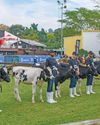
KZN Youth Show at Roval Agricultural Exhibition
The KZN Youth Show will run from Friday, 24 May to Sunday, 26 May at the Royal Showgrounds in Pietermaritzburg.
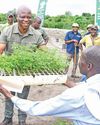
Hemp permits and irrigation system handed over
In an effort to fast-track the entry of rural farmers into the cannabis and hemp industries, KwaZuluNatal Minister for Agriculture and Rural Development, Super Zuma, visited the Shukasibheme Project in Mbazwana, a co-operative in Mseleni, uMhlabuyalingana in the Umkhanyakude District, to hand over cannabis and hemp permits as well as a borehole and irrigation system.

Meet some of the heroes behind avitourism destinations
Exploring what the Garden Route offers birdwatchers, Brian Berkman discovers some special people who run hospitable places to meet and see a variety of species.
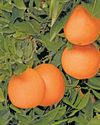
What the Citrus Academy offers aspiring producers
Cobus du Plessis takes a look at the Citrus Growers' Association of Southern Africa's Citrus Academy and how it is helping to develop aspiring farmers in the sector.
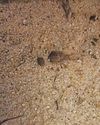
Natural-born killers of the insect world
The Myrmeleontidae family of lacewings from the Neuroptera order of insects consists of about 2 000 species of which 125 are found in South Africa.
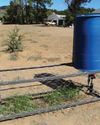
Seeder kick-starts vegetation in challenging environments
Dr George Craven of Noorspoort, Steytlerville, in the south-eastern Karoo, is successfully using a home-built 'bedstead seeder' to re-establish veld plants in an arid area, writes Roelof Bezuidenhout.